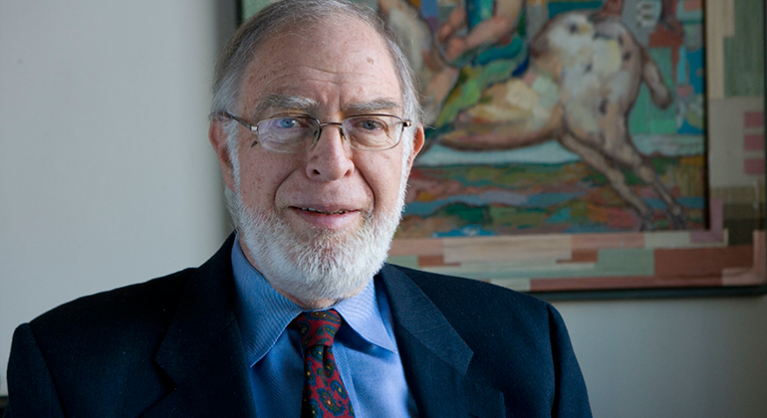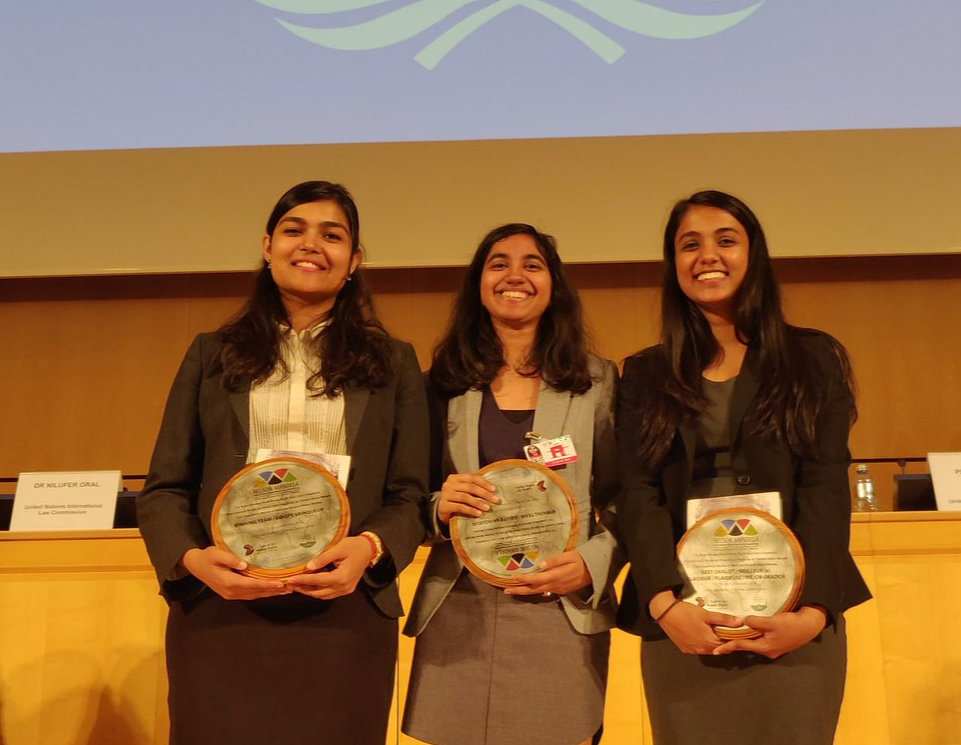Human Rights Mooting at the Bonavero Institute
The Bonavero Institute seeks to enrich the human rights experience of Oxford students, and to assist them to develop careers in the broad field of human rights. Its “Gateways to Human Rights Research and Practice” initiative aims to deepen student engagement with the institute’s research projects and to provide insights into human rights practice. Several programmes form part of this initiative: Non-credit Courses on Human Rights Strategy, Research Training Programmes, various opportunities for Human Rights Mooting, the Collaborative Legal Aid Clinic at HMP Huntercombe and our Summer Fellowship Programme.
The Bonavero Institute seeks to promote mooting as a way of introducing students to human rights law. As well as hosting the major international Monroe Price Media Law Moot, the Blackstone Human Rights Law Moot (together with Oxford Lawyers without Borders), and the Herbert Smith Freehills Oxford Disability Mooting Championship, the Bonavero also encourages Oxford students to participate externally in the Nelson Mandela World Human Rights Moot Court Competition and the European Human Rights Moot Court Competition.
The Monroe Price Media Law Moot
Established by the Programme in Comparative Media Law & Policy at the University of Oxford in 2008, the Monroe Price Media Law Moot Court competition aims to cultivate interest in the role of the media, and information and communication technologies, in societies around the world.

As of 1 August 2017, the Price Media Law Moot Court competition will be hosted by the Bonavero Institute of Human Rights. With the Faculty and College working in partnership, this dynamic global research institute will bring together world-class scholars and practitioners with an active interest in bridging the divide between theory and practice in human rights.
The annual Monroe Price Media Law Moot Court Competition requires students to engage in comparative research into media law at national, regional and international levels, and to develop written and oral argument on challenging legal issues. Six Regional Rounds are held across the Globe, in South Asia, the Asia-Pacific, South East Europe, North East Europe, the Middle East and the Americas. The final International Rounds are held in Oxford, and gather participants from countries as diverse as Australia, Belgium, Brazil, China, Egypt, Ethiopia, Greece, India, Lebanon, the Philippines, Serbia, Trinidad and Tobago, Ukraine, the UK and the USA.
Nelson Mandela World Human Rights Moot Court Competition
The Nelson Mandela World Human Rights Moot Court Competition is organised by the Centre for Human Rights, based at the University of Pretoria, with the support of the United Nations Office of the High Commissioner for Human Rights. The Mandela Moot applies international human rights law, including both the general instruments and bodies of the UN system and the three regional systems of Africa, Europe and the Americas. The oral rounds are held at the Palais des Nations, Geneva, the home of the human rights organs of the United Nations.
 Oxford teams have had great success in this competition, finishing second in the final oral rounds in 2017 and making the semi-final rounds in 2018 and 2020. In 2019, the Oxford team (pictured to the right) won the competition with Ayushi Agarwal and Gayathree Devi Kalliyat Thazhathuveetil, coached by Raghavi Viswanath (in the middle).
Oxford teams have had great success in this competition, finishing second in the final oral rounds in 2017 and making the semi-final rounds in 2018 and 2020. In 2019, the Oxford team (pictured to the right) won the competition with Ayushi Agarwal and Gayathree Devi Kalliyat Thazhathuveetil, coached by Raghavi Viswanath (in the middle).
The Competition is open to both undergraduate and master's degree students. A team of two students from each university – preferably one woman and one man – is invited to participate. In the preliminary rounds the students submit heads of argument for a hypothetical case, which are assessed by a panel of experts. The best 10 teams from each UN region are then invited to participate in the pre-final and final rounds, for which they must argue two sides of the hypothetical case before a bench of human rights experts. The two best teams proceed to the final round, which is presided over by judges from international courts and tribunals.
Blackstone Human Rights Law Moot
Together with Lawyers Without Borders, the Bonavero Institute organises the Blackstone Human Rights Moot which determines the team that represents the University of Oxford at each year’s Mandela moot final round in Geneva.
Herbert Smith Freehills Oxford Disability Mooting Championship
The Herbert Smith Freehills Oxford Disability Mooting Championship has been established to promote the intellectual study of disability and how it intersects with domestic and international law. The mooting championship is designed to showcase the challenges faced by academics and legal practitioners who work in this field. In so doing, it will raise awareness of legal issues facing people with disabilities and the need to increase the representation of disabled people within the legal profession. Established in 2014, this event has become hugely successful and is now regarded as one of the Law Faculty’s leading mooting competitions. Following its success, Herbert Smith Freehills have approached the Faculties of Law at the University of Oxford and the University of Cambridge to establish the first Oxford v Cambridge edition of the Mooting Championship. The inaugural Herbert Smith Freehills Disability Mooting Championship: Oxford v Cambridge took place in Oxford in November 2019.
This competition takes place each year in November, coinciding with the UK Disability History Month. Senior members of the judiciary, partners from Herbert Smith Freehills, and Oxford Law Faculty members judge the final rounds. The competition is kindly supported by Herbert Smith Freehills and coordinated by Dr Marie Tidball and partners as part of the Oxford Disability Law and Policy Project.
European Human Rights Moot Court Competition
The annual European Human Rights Moot Court Competition is intended to simulate the procedures of complaints to the European Court of Human Rights in Strasbourg. Teams of 2-4 students from around Europe compete in a preliminary round and then a final between 20 teams. Pleadings will take place inside the ECHR, providing students with a unique insight into the workings of the court and its organs.
